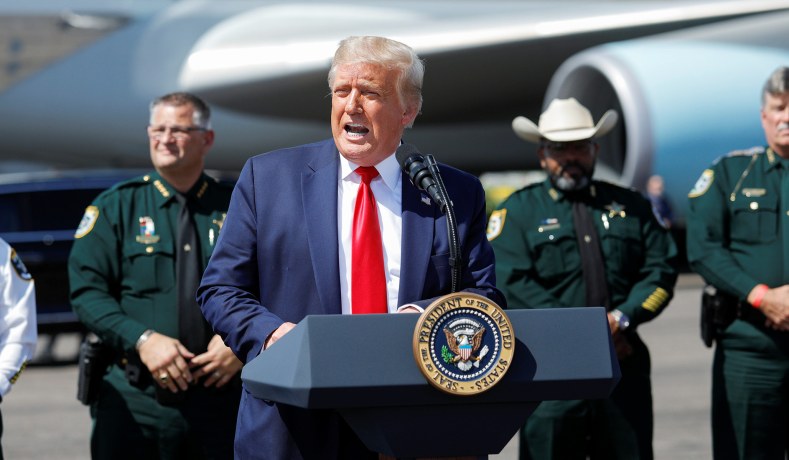
Republican primary voters in Senate and House races have done a fairly solid job this year of rejecting some of the party’s best-known toxic figures, such as Steve King, Roy Moore, and Kris Kobach. Arthur Jones didn’t sneak by again in Illinois’ Third District, where the Democrats were purging the most prominent pro-lifer left in their party. But every cycle, a few nuts slip through. One is QAnon believer Marjorie Taylor Greene in Georgia’s 14th District, and another is Laura Loomer in Florida’s 21st District. Loomer got 42.5 percent of the vote in a six-way race that included another QAnon believer and a former exotic dancer.
Loomer is obviously bad news both morally and politically, but she’s not really that important by herself, any more than Arthur Jones was; she’s running in a deep-blue district and is going to lose, absent some truly bizarre circumstances. She got a little under 15,000 votes in the primary, compared to 75,000 for Lois Frankel, who is seeking her fifth term. Frankel won by 27 points in 2016, and ran unopposed in 2014 and 2018. The party should just drop a terse statement of non-support and ignore her, which of course is not what happened: Donald Trump congratulated her on her primary win, and Congressman Matt Gaetz went further and actually supported her in the primary. Trump sucks up so much oxygen that Loomer will probably do less damage to other Republicans than would usually be the case, but this is still an unforced error.
Setting aside the specifics of why Loomer is bad news, is there a case for wanting a well-known provocateur to run in a race that would otherwise be uncontested? There is an argument you can make that sounds plausible in theory, but it never works out in practice. The argument goes something like this: Lois Frankel could just cruise to another uncontested reelection or walk over another unknown, but instead, a figure such as Loomer will bring money and attention to the race, compel Democrats to spend resources there, and interrogate Frankel in debate with her confrontational approach. On this theory, even though Loomer has no prayer of winning, she helps stretch the playing field.
It typically does not work that way. Sure, Loomer raised a little over $1 million in the primary and will probably bring in more than that in the fall through fringe boosters such as Roger Stone and Alex Jones. And of course, the media will love covering her. But forcing Frankel to spend a bunch of money or get rattled in debate (or even, for that matter, debate her opponent at all) first requires her to see Loomer as a threat. And it is unlikely that she will; Democrats are salivating at walking over her.
From Trump’s perspective, of course, there is a different calculus: How Loomer affects other Republicans is of far less interest to him than his own campaign. Florida is a must-win state in the presidential race that he carried by 1.2 percent of the vote in 2016. (Georgia is likewise a battleground.) Most voters already know that Donald Trump has no standards in whom he associates with, and most conventional voters are going to show up anyway. If Loomer brings out a handful of loons and conspiracy nuts to the polls, that could help Trump — if the presidential race is competitive, a big if at this juncture. From Trump’s perspective, to the extent he’s not just running on his raw instinct, that would seem to be the logic behind congratulating a candidate who really should have no business on a ballot. But she could have given him just the same benefit if he simply kept his mouth shut.



